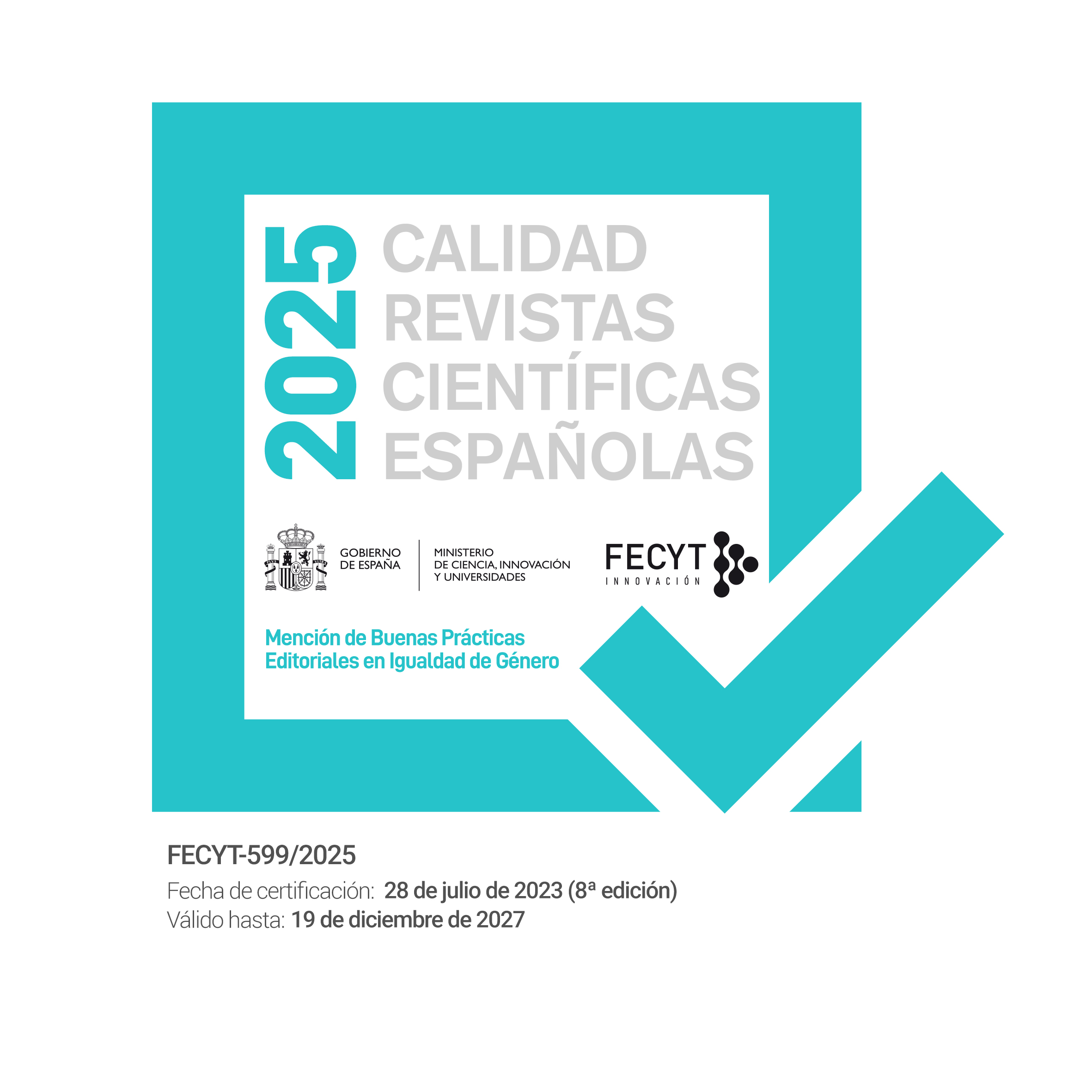Paisaje y Geografía en la obra de Eduardo Hernández-Pacheco = Landscape and Geography in the work of Eduardo Hernández-Pacheco
DOI:
https://doi.org/10.5944/etfvi.6-7.0.14861Palabras clave:
paisaje, protección de la naturaleza, fotografía científica, fisiografía, landscape, nature conservation, scientific photography, physiographyResumen
Eduardo Hernández-Pacheco desarrolló en la primera mitad del siglo XX una importante labor de investigación en relación con las llamadas ciencias de la Tierra, aunque básicamente y por formación fue geólogo, la Geografía tuvo un papel destacado entre su producción científica al lado de otras muchas disciplinas. El paisaje natural aparece como objeto de estudio en algunas de sus publicaciones, especialmente en Fisiografía del Solar Hispano (1956), una creación fundamental de la cultura científica española del siglo XX, aquí no solo se hace una regionalización del país en función del paisaje sino que se presenta además una teoría sobre el mismo. Hernández-Pacheco también fue pionero en la lucha por la protección de la naturaleza, colaborando en la creación de la figura de los Parques Naturales, y en el uso de la fotografía como herramienta fundamental de investigación.
Eduardo Hernandez-Pacheco developed in the first half of the twentieth century an important research regarding in geoscience, although basically and in his first training was geologist, Geography played a leading role among his scientific beside many other disciplines. The natural landscape appears as an object of study in some of its publications, especially in Fisiografía del Solar Hispano (1956), a fundamental creation of the Spanish scientific culture of the twentieth century, here not only a regionalization of the country in terms of landscape is made but also creates a theory on it. Hernández-Pacheco was also a pioneer in the struggle for the protection of nature, working for the creation of the Natural Spanish Parks, and the use of photography as a research tool.
Descargas
Descargas
Cómo citar
Número
Sección
Licencia
Los autores que publican en esta revista están de acuerdo con los siguientes términos:
- Los autores conservan los derechos de autor (copyright) de las obras publicadas y garantizan a la revista el derecho de ser la primera publicación del trabajo al igual que permiten la reutilización del mismo bajo la licencia de uso indicada en el punto 2.
- Las obras se publican en la edición electrónica de la revista bajo bajo una licencia Creative Commons Reconocimiento-NoComercial 4.0 Internacional, que permite a otros compartir el trabajo con un reconocimiento de la autoría del trabajo y de la publicación inicial en esta revista. Se pueden copiar, usar, difundir, transmitir y exponer públicamente, siempre que: i) se cite la autoría y la fuente original de su publicación (revista, editorial y URL de la obra); ii) no se usen para fines comerciales.
- Se permite y se anima a los autores a difundir electrónicamente las versiones pre-print (versión antes de ser evaluada) y/o post-print (versión evaluada y aceptada para su publicación) de sus obras antes de su publicación, ya que favorece su circulación y difusión más temprana y con ello un posible aumento en su citación y alcance entre la comunidad académica (por ejemplo, en repositorios institucionales o en su propio sitio web). Color RoMEO: verde. (Véase The Effect of Open Access) (en inglés).
Authors who publish in this journal agree to the following terms:
- Authors retain copyright and grant the journal right of the first publication with the work simultaneously licensed under a license Creative Commons Reconocimiento-NoComercial 4.0 Internacional that allows others to share the work with an acknowledgement of the work's authorship and initial publication in this journal.
- Authors are able to enter into separate, additional contractual arrangements for the non-exclusive distribution of the journal's published version of the work (e.g., post it to an institutional repository or publish it in a book), with an acknowledgement of its initial publication in this journal.
- Authors are permitted and encouraged to post their work online (e.g., in institutional repositories or on their website) prior to and during the submission process, as it can lead to productive exchanges, as well as to earlier and greater citation of the published work (See The Effect of Open Access).








